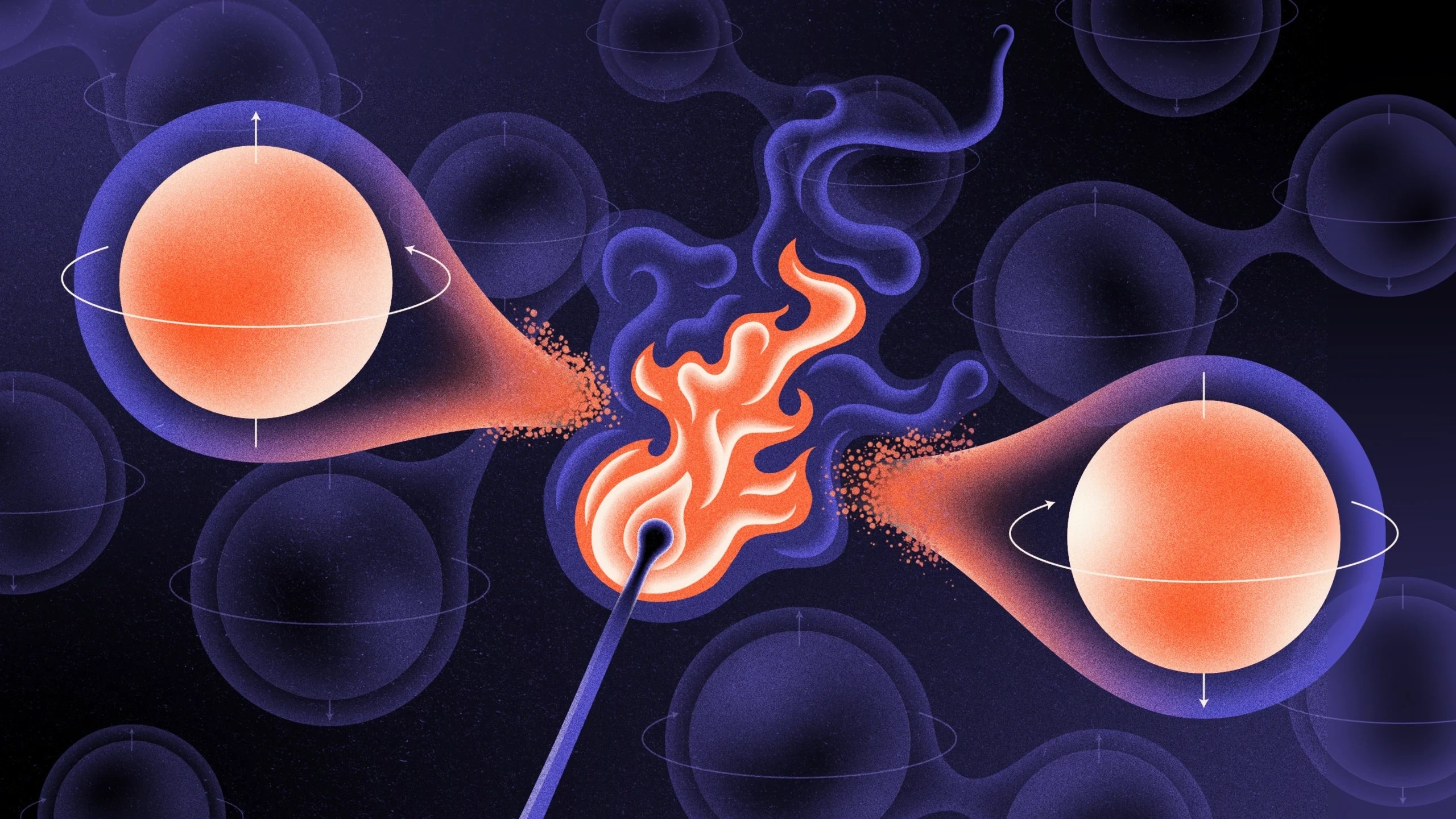In a groundbreaking discovery, a team of computer scientists has inadvertently uncovered a critical limit to quantum entanglement, a phenomenon that has long captivated and puzzled researchers. This finding, which emerged while developing a new quantum algorithm, reveals that heat can completely obliterate entanglement in quantum systems.
Quantum entanglement, famously dubbed “spooky action at a distance” by physicist Erwin Schrödinger nearly a century ago, occurs when quantum particles like atoms interact and lose their individual identities to form a collective state. This collective state exhibits behaviors that defy classical intuition, making entanglement one of the most intriguing aspects of quantum mechanics.
While scientists have a solid grasp of entanglement in simplified models with a few particles, real-world systems, composed of vast arrays of atoms, present a different challenge. In these complex systems, the principles of quantum physics must contend with the laws of thermodynamics, creating a chaotic interplay that complicates our understanding.
At extremely low temperatures, entanglement can stretch over considerable distances, enabling remarkable phenomena such as superconductivity. However, as temperatures rise, the atoms within these systems become more active, shaking off the delicate bonds that hold entangled particles together.
The research team, including Ankur Moitra from the Massachusetts Institute of Technology (MIT), has established that entanglement doesn’t merely weaken with increasing temperature; it reaches a specific threshold beyond which it disappears entirely. “It’s not just that it’s exponentially small,” Moitra explained. “It’s zero.” This discovery reinforces earlier observations of what researchers have termed the “sudden death” of entanglement, but with much stronger and more rigorous mathematical proof.
Interestingly, the researchers behind this pivotal finding did not set out to explore the nuances of entanglement. Instead, they were focused on advancing quantum computing, specifically devising a new algorithm aimed at simulating the behavior of quantum systems at high temperatures.
One of the team members, Ewin Tang, contributed to creating a rapid algorithm that enhances our understanding of how quantum systems behave when subjected to heat. This work holds significant implications not only for quantum physics but also for the future of quantum computing.
As excitement grows within the scientific community, physicists like Soonwon Choi from MIT commend the research, noting its potential to shift perspectives on entanglement. “It’s a very, very strong statement,” he remarked, expressing admiration for the rigor of the new findings.
This discovery not only sheds light on the fragility of quantum entanglement in the presence of heat but also opens new avenues for future research in quantum physics and computing. As scientists continue to unravel the complexities of the quantum world, this new understanding of entanglement may be key to harnessing the full potential of quantum technologies.
Read more at Wired.







